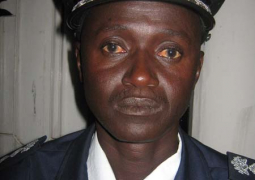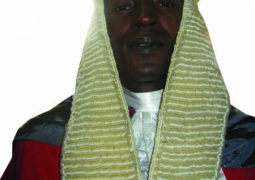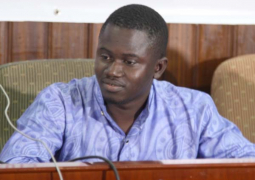Sittings of the Tax Commission continue at the High Court in
Ms Corr, among others, furnished the Commission with the outstanding balances owed to the Gambia Revenue Authority.
Corr told the Commission that records have shown that Lawyer Antouman Gaye was owing D1,516,054.49.
She stated that she was submitting a new assessment to the commission, because the first assessment was wrong, adding that the correct outstanding balance was 1,351,434.96.
Ms. Corr further explained that there was a mistake, and that they were now using the figures for the assessments for 2008, 2009 and 2010, including the penalty.
She revealed that they have concentrated on the high income tax payers, adding that Mr. Gaye’s file was never reassessed until the tax payer appeared before the commission.
Ms. Corr, however, added that even if the commission was not set up, they would do the assessment.
According to Ms Corr, they focus on the big companies that can generate heavy income for the government.
Examples of such companies, she added, are Standard Charted Bank, Gamcel, Africell which, she said, owe the Gambia Revenue Authority millions of dalasis, which are yet to be paid.
She stated that Emanic Consulting Firm, for example, conducted a self assessment and assessed itself on 15%, but they did not report that yet, adding that when the file was sent to them for reassessment, it was not reassed because it was not put into the system.
She said the amount assessed was D86,562, and D202,000, including the penalty from 1999, adding that nothing was declared by Emanic, and the sales tax was D100,000, which was for 2010, and it was not paid.
She added that Emanic Consulting was not paying for the past 10 years, and the reason why they were not reassessed was because GRA was focusing on the big companies that can generate a great income for the government.
Ms. Corr also informed the commission that the outstanding balance for Africell on corporate tax was D80, 000, 000, a balance, she said, the company is still servicing.
Africell did not pay their corporate tax up to date, and the balance for the corporate tax from 2008, 2009 and 2010 was D60, 058.702, according to Ms Corr.
She said that the taxes collected since 31 May 2011 was D43, 780, 000, adding that they had a payment plan agreement with Africell since 2009, the letter of which she showed the Commission.
The 1st payment plan was fully complied with, and it was the responsibility of the officer who approved the payment plan to make sure the payment was done, she continued.
Ms. Corr also revealed at the commission that concerning lawyer Pap Cheyassin Secka, the income tax declared was D72, 000 for 2009, and the total liability of Pap Cheyassin Secka was 2.3 million.
Noting that Pap Cheyassin Secka was not assessed on sales tax, Ms Corr added that if she had gone through the file personally, she would have detected the errors.
She revealed that Pap Cheyassin Secka’s file declared in 2008 was D600,000 but the assessment sheet bears D303,000 and that was in their assessment, but the deduction was not supported by any document.
Ms Corr also revealed at the commission that lawyer Joseph Joof’s income declared in 1999 was D1.8 million, but the assessment showed that it was D2.6 million, adding that the difference must have been an error.
The commission continues sitting today.
Established in November 2011 by President Yahya Jammeh, the commission of inquiry looks into tax evasion and other corrupt practices of accountants, legal practitioners, companies, and private persons, medical practitioners and institutions required to pay tax to the Gambia Revenue Authority.
The commission was also mandated, among other things, to ascertain the extent of loss of public revenue resulting from non-payment of capital gains tax, personal income tax and sales tax; and to determine the role of individuals, groups and professional bodies in the evasion and avoidance of tax.
It will also enquire into professional malpractice by members of the public as it relates to obtaining goods through widespread issuance of false and dud cheques and other malpractices by members of professional bodies as these have affected foreign direct investment in The Gambia.
Read Other Articles In Article (Archive)




